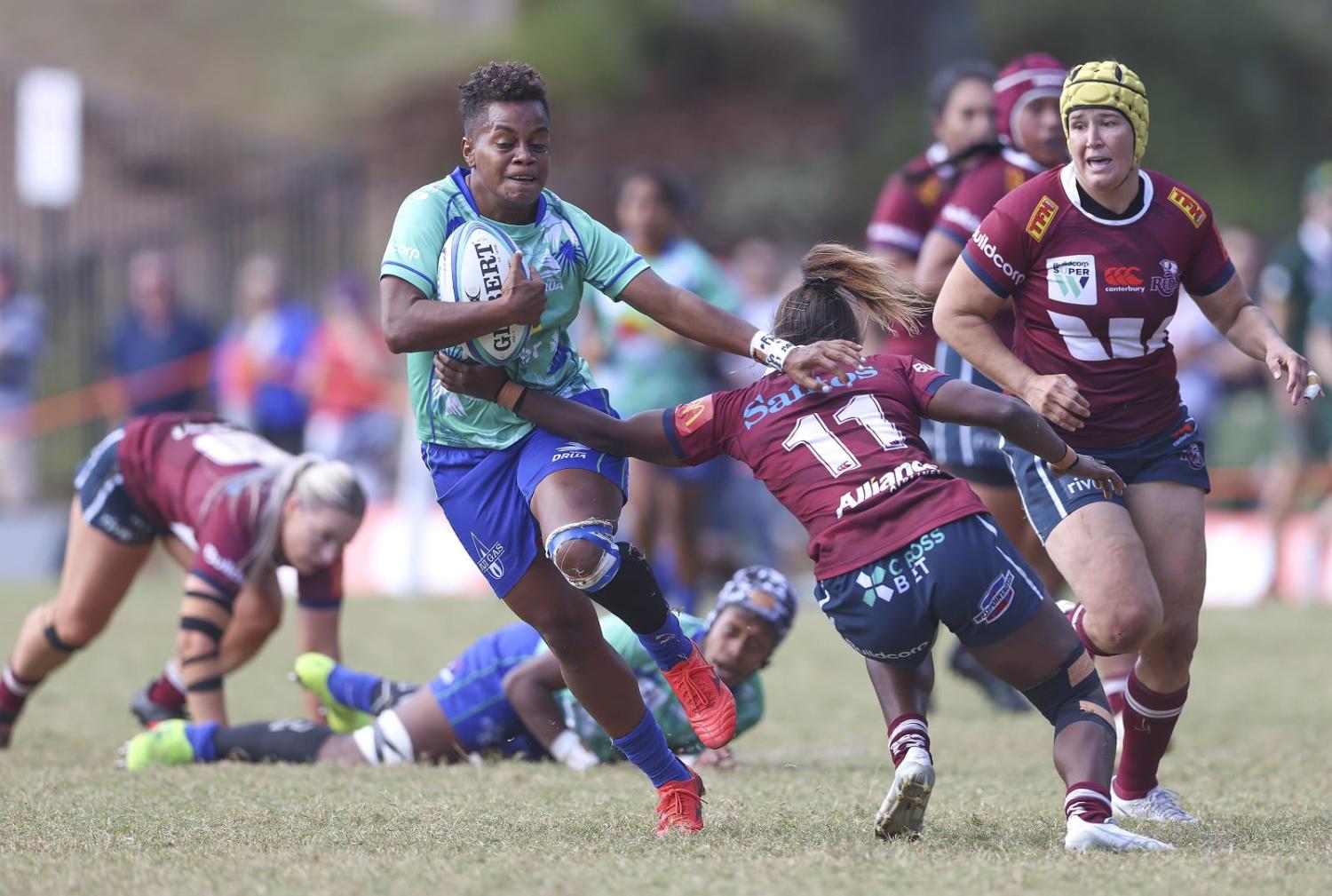When the playing field is levelled, the dividends are doubled, both in politics and sport.
By Jessica Collins
As 2024 rang in, an historical vote was taking place in the Pacific. Hilda Heine, former president of the Republic of Marshall Islands (RMI) and first ever female head of state in the Pacific, was going head-to-head with David Kabua (the incumbent president) to see who would reign as RMI’s head of state for the next four years.
More than 500 people crammed into the Nitijela – RMI’s 33-seat parliament – to watch the count in early January. With standing-room only, the two political heavyweights watched on while each vote was read out to the room. The tally went one-for-one, much like a tennis rally, until the score reached 16 votes each – with one remaining. The room collectively held its breath.
Hilda Heine came up trumps.
President Heine now joins Fiamē Naomi Mata’afa, Prime Minister of Samoa, as the only other female head of state serving in the Pacific.
The Pacific Islands region still has one of the lowest percentages of female politicians in the world.
What they have achieved to get where they are is nothing short of remarkable. In Samoa, for example, only matai (chiefs) can be political candidates, but these village-based matai are mostly men. Only 5.5 per cent of Samoa’s matai at the last survey were women (the research was conducted nearly ten years ago, but there’s little to suggest the needle would have shifted considerably).
Broadly speaking, the Pacific Islands region still has one of the lowest percentages of female politicians in the world. Female candidacy rates in some Pacific Island country elections are declining due to the challenges of running in male-dominated societies, including rising corruption and harassment.
In Fiji’s 2022 election – the first change of government since the 2006 coup – the number of female MPs fell from ten to six, out of 55 possible seats. Tuvalu returned at its most recent election to having no women in its parliament. Earlier this year, King Topou of Tonga sought to revoke his appointment of Tonga’s only female member of Cabinet – the Minister for Foreign Affairs and Minister for Tourism. In Papua New Guinea, polygamy is on the rise, as is domestic violence against women – a trend that has, perversely, increased as PNG women become more educated and empowered.
Is there hope?
Always.
The number of female candidates in Nauru rose in 2022 to 14 per cent of all nominees. The same year, Vanuatu elected its first female MP since 2008 – Gloria Julia King, an all-star soccer player, mum-of-four and only woman in the 52-member parliament.
In Fiji, despite the low number of female MPs, women are well represented across senior party positions, paving the way for future political success. In PNG, while the number of female candidates dropped by 5 percent in the 2022 election, the number endorsed by political parties significantly increased to almost double the previous election (40 per cent of the total female candidacy). The PNG Prime Minister James Marape claimed ten female endorsements in his party, alongside his personal help in their campaigns. In a country considered to hold the most expensive per capita elections in the world, women’s access to PNG’s political party resources can mean the difference between a win and a loss.
Using sport to advance women is one of the most transformative approaches to Pacific development. Sport is the great equaliser.
Between 2017 and 2022, no women served in PNG’s 118-seat parliament, solidifying its popular nickname as hausman. But now there are two – with one woman already serving as minister – proving that with determination and the right kind of support, it is possible to break into one of the hardest-to-enter parliaments for women in the world. As Marape said post-election, “My message to the females in this country is, do not lose hope. We will better the electoral processes.”
But given the repeated and extreme difficulties of getting women elected in PNG, the debate about reserved parliamentary seats for women may be brought back to the table. Quotas are not common practice across the region, although Bougainville, Samoa and French territories are leading on relevant legislation, giving women the boost they need to get across the line.
Pacific women are pushing forward in the sporting arena, too. Pacific women’s rugby union and league teams have burst onto the field in a big way. Helped by the Australian government, and watched by audiences right across Australia and the Pacific, last year Pacific women carved it up in the inaugural Women’s Pacific Rugby League Championship.
And just last month, an extra $14.2 million (US$9.39 million) was dedicated to – among other things – establishing new rugby union competitions and pathways for Pacific women and girls. Building on the success of the Fijian Australian Super Women’s rugby team, Fijian Drua Women, a new Penina Pasifika team will play in the Super Women’s rugby pre-season with the help of Australia’s funding. It means women from across the region, particularly Samoa and Tonga, will be able to showcase their talents and find more pathways to a successful career on the rugby pitch.
In 2023, the FIFA Women’s World Cup showed us that using sport to advance women is one of the most transformative approaches to Pacific development. Sport is the great equaliser. As Gloria Julia King said to me last year during the FIFA World Cup, “When it comes to football, when it comes to sports, all these barriers dissolve.” Beyond the massive social returns on investment into Pacific women’s sport, earning the respect of their male friends and family is the development dividend that will go the extra mile.
With elections coming up in Solomon Islands and Palau and more big sporting tournaments on the horizon, the task now is to ensure that in between, we hold onto that hope and keep programs that build women’s leadership, experience and pathways running at full speed.















